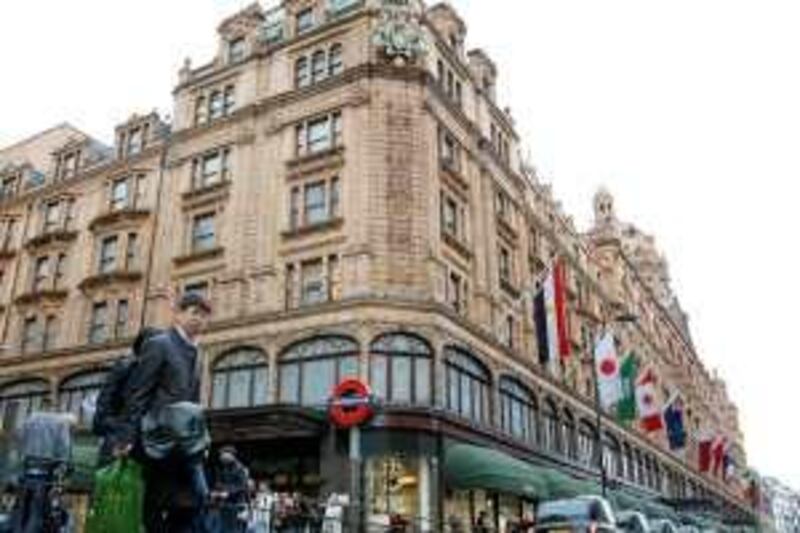Qatar's acquisition of the UK luxury department store Harrods brings the country's recent investments in London to significantly more than £3 billion (Dh16.31bn) in a sign of the Gulf's increasing sway in one of the world's top property markets. While investments by European institutions declined last year, Qatar kept its spending at the same levels as previous years, said Blair Hagkull, the regional director of the property consultancy Jones Lang LaSalle.
"In the last 18 months, the primary location for direct Gulf investment has been the UK, especially for Qatar," he said. "They are always looking for those core triple A assets, ones that have enduring value and are ultimately very stable in the long-term." These investments have been driven by the weakness of the pound and a fall in property prices that has enabled wealthy funds such as Qatar Holding, which said on Saturday it would pay £1.5bn for Harrods, to scoop up the majority of the UK capital's prime assets.
In the last three years, Qatar has taken major stakes in some of London's most iconic buildings. Qatari investors paid £150 million for an 80 per cent stake in the London Bridge tower, which is better known as the "Shard of Glass" because of its pyramid glass look. Qatar Holding bought a 24 per cent stake in Songbird Estates, which owns more than half of the buildings in Canary Wharf. The country's investment funds have also picked up the American Embassy building in Grosvenor Square and Chelsea Barracks in recent years.
The dominance by international investors peaked at the end of last year when they accounted for 90 per cent of office purchases across the City of London financial district and Docklands, according to the property consultancy Cushman and Wakefield. Interest among UK investors is picking up as new stock becomes available. UK investments of US$540 million (Dh1.98bn) in the City and Docklands accounted for 60 per cent of investment in those areas in the first quarter of this year, against $290m from overseas.
The office market in London's West End also had a relatively robust start to the year with more than $1.4bn invested in the first quarter. "The start of the year was marked by a distinct shortage of opportunities, but toward the end of March the number of investment opportunities has increased substantially," said Bill Tyser, the head of City investment for Cushman and Wakefield, in a recent report.
The recovery in leasing activity also continued in the first quarter of this year, with take-up levels increasing across all of London's office markets, according to Knight Frank, the UK property broker. Rental yields for prime space in the City now stand at 5.50 per cent, while in the West End they have fallen to 4.5 per cent, the company said in a recent report. "We believe there is still further yield compression to come as demand is, in our view, set to increase in the face of more rental growth," it added.
"UK retail property funds have seen a strong inflow of money, more banks are opening their books to lend again and sterling weakness continues to attract foreign buyers." The West End remains the world's most expensive office market with an occupancy cost of $182.94 per square metre per year, despite the recent depreciation of sterling to the US dollar, CB Richard Ellis (CBRE) said last week. "Currency fluctuations play a big role in market rankings for the top 10 for office costs, but the 'most expensive club' still includes the usual suspects - London, Hong Kong and Tokyo," said Dr Raymond Torto, CBRE's global chief economist.
bhope@thenational.ae agiuffrida@thenational.ae






